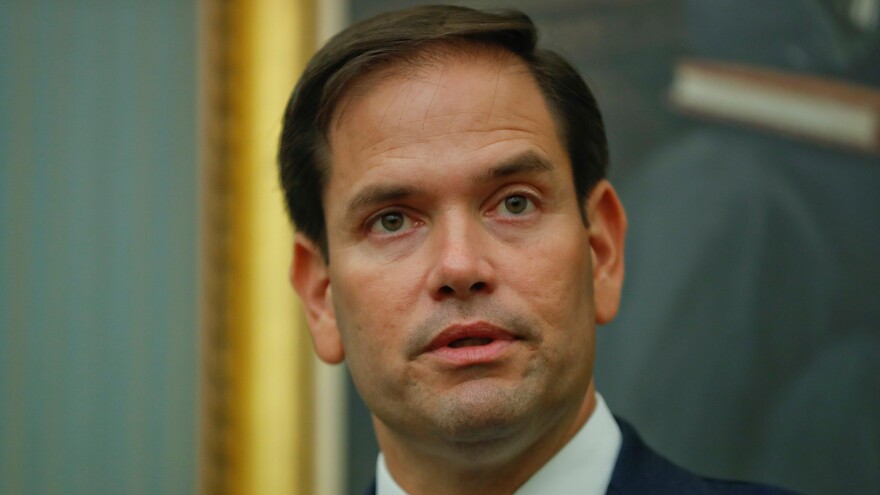U.S. Senator Marco Rubio (R-FL) has announced that he has joined the bipartisan Senate Climate Solutions Caucus. It’s the first caucus he has become a member of since taking office in 2011.
“Changes in our climate, such as the rise of sea levels, are measurable facts. Many communities in Florida are already dealing with the consequences of these changes and will have to adapt to and mitigate against their impact for decades to come,” Sen. Rubio said. “I look forward to working with my colleagues to find real and responsible solutions in a bipartisan way.”
The bipartisan Climate Solutions Caucus in the House of Representatives was formed in February 2016 by Democratic Representative Ted Deutch and former Republican Representative Carlos Curbelo, both from Florida, with help from the Citizens Climate Lobby (CCL) - a nonprofit, nonpartisan grassroots advocacy organization. The Senate version was formed in 2019 by Republican Senator Michael Braun from Indiana and Democratic Senator Chris Coons from Delaware, who both chair the caucus.
Related: This Jacksonville Scientist Is On A Mission To Change Public Policy
Rubio was one of four Senators to join this month. The others were Debbie Stabenow (D-MI), Susan Collins (R-ME), and Tammy Baldwin (D-WI).
“We have a diverse group of Senators who have joined the Climate Solutions Caucus, which is important because Congress cannot make significant progress on climate issues until we can convince all Americans that climate policy can make a meaningful difference without harming their pocketbooks,” Sen. Braun said. “The Climate Solutions Caucus is aimed at addressing this effort, and I hope, through a bipartisan conversation, we can make real progress.”
Andres Jimenez, the Senior Director of Government Affairs for CCL, said bipartisanship is needed if Congress is going to enact meaningful climate policies. But he said the CCL does applaud the ambitious Democratic sponsored environmental bills that have been coming out of the House recently.
“But what happens is that a lot of those end up becoming messaging bills because they're not bipartisan and because they aren't taken up in the Senate. We believe that any legislation that is going to move needs to move through the House and have bipartisan strong support and be able to then be taken up in the Senate and pass into law,” he said.
In August, Rubio wrote an op-ed on climate change for USA Today. In it, he makes claims that seem to run counter to the established scientific consensus on climate change - casting doubt on the role humans are playing and saying that adaptive measures will solve nearly all of the challenges posed by climate change.
“Climate has always been changing, climate is changing now,” Rubio said on CBS Miami shortly after the op-ed was published. “There’s a lot of debate about the causes and what percentage of it is due to human activity versus something else.”
He also suggested that reducing fossil fuel emissions would be catastrophic for the U.S. economy.
Rubio’s op-ed was heavily criticized by the scientific community.
In an op-ed for Newsweek, prominent climate scientists Michael E. Mann and Andrea Dutton described Rubio’s USA Today op-ed as a prime example of what they call a “more subversive ‘softer’ form of climate denialism.”
But Scott Schechinger, a CCL volunteer and self-described Republican, said he’s not too worried about controversial views that Rubio has held in the past.
“It’s not where we’re at as an organization,” he said. “What makes me more excited than worried is that after that statement he's now taken this step to join this bipartisan group. To me that shows progress and I think we should commend him for the progress that he's making instead of doing the opposite.”

Brendan Rivers can be reached at brivers@wjct.org, 904-358-6396 or on Twitter at @BrendanRivers.






